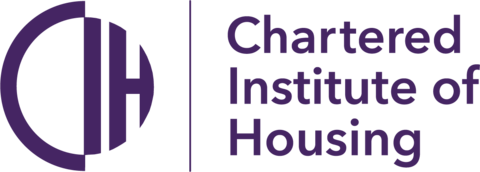
28 Jun 2024 ● CIH
CIH professional standards

In this article we will give you the headlines about the CIH professional standards. These seven characteristics will enable you to think about your professional development needs and how you can contribute to the professionalism of your organisation and the wider sector. You can complete the CIH self-assessment here, to see how you compare and get a personalised report on your own professional profile. You can deep-dive into each of the standards, their practical applications, questions to ask yourself, case studies, learning resources and much, much more here.
Integrity
A housing professional has a clear understanding of their values and acts in accordance with them – they will do the right thing, for the right reasons, based on the best evidence and without partiality. As a housing professional who acts with integrity, you will:
- Responsibility: Recognise and take responsibility for your actions and mistakes and contribute to putting things right.
- Role-model: Visibly and consistently be a role-model for professional principles and values.
- Challenge behaviour: Challenge behaviours and attitudes that are inconsistent with your professional values.
- Honesty: Demonstrate transparency and honesty in your decision-making and communication.
- Know your limits: Acknowledge your own emotional and professional limits and ask for support or help when necessary.
- Attitude: Strive to treat everyone fairly, promptly, effectively and sensitively.
Inclusive
A housing professional acts transparently and fairly, builds good relationships and works collaboratively with partners, customers and communities to achieve better outcomes. As an inclusive housing professional, you will:
- Unconscious bias: Address your own behaviours and assumptions (unconscious bias) in how you work.
- Perspective: Recognise, value and draw on a wide range of perspectives to ensure that you deliver the best service.
- Inclusive: Demonstrate sensitivity to the customs, cultures and beliefs of others.
- Collaboration: Build collaborative relationships across organisation boundaries, cultures and other disciplines.
- Challenge: Have a zero-tolerance approach towards inappropriate, offensive or discriminatory behaviour.
- Holistic: Promote diversity of views and experiences, ensuring you understand variations and listen to all relevant voices.
Ethical
A housing professional acts fairly and makes choices and decisions by applying principles and values consistently. They understand the impact that poor decisions can have both on people’s lives and the reputation of their organisation and they challenge unethical practice in a fair and considered way. As an ethical housing professional, you will:
- Professional boundaries: Understand the importance of setting and keeping healthy professional boundaries.
- Ethical working practices: Understand what ethical working practice means in the context of both your role and your organisation.
- Ethical perspectives: Make responsible decisions by considering different ethical perspectives and finding the best possible way forward.
- Role model: Be a role model and promote ethical leadership and professional principles and values across your organisation and the wider housing profession.
- Conflict of interest: Ensure that your private, personal, political and financial interests do not conflict with your professional duties.
- Professional judgement: Use your professional reasoning and judgment to make decisions.
Knowledgeable
A housing professional has relevant and up-to-date practical and specialist knowledge as required by their job role, understands the bigger picture and has a passion for continuous learning. As a knowledgeable housing professional, you will:
- Breadth and depth: Understand the breadth and depth of knowledge and skills you need to do your job.
- Contextual understanding: Understand the bigger picture to set your role in context.
- Currency: Keep up to date, stay aware of current issues, trends and changes in best practice.
- Self-aware: Demonstrate awareness of your own strengths, areas for development and the limits of your ability and expertise.
- Reflection: Assess and commit to your continuing professional development and reflective learning.
- Sharing: Share your knowledge, skills and expertise freely with others.
Skilled
A housing professional equips themselves with the relevant skills to deliver effective services to tenants, customers, colleagues, and partners. As a skilled housing professional, you will:
- Customer service: Pioneer and champion excellent customer service.
- Resilience: Understand what factors affect resilience in yourself and others.
- Change: Create change and actively support others to embrace and take the opportunities that change presents.
- Technology: Make the best use of technology where this enhances the quality and effectiveness of services provided.
- Influence: Be able to influence and negotiate to achieve positive outcomes.
- Problem-solving: Solve problems, be flexible, adaptable and respond to situations creatively, in the moment.
Advocate
A housing professional acts as an ambassador for the wider housing sector and an advocate for the housing profession. As an advocate for the housing profession, you will:
- Reputation: Enhance the reputation of the housing profession.
- Stigma: Understand the impact of your language, behaviour, and conduct on the broader image of rented housing, negative stereotyping and stigma.
- Public pride: Generate a sense of public pride in the importance and value of rented housing as a positive housing choice.
- Ambassador: Act as an ambassador for the wider profession by maximising the positive impact you make on individuals and communities.
- Community: Create a sense of community with a clear set of values and social purpose.
Leadership
Housing professionals at all levels should demonstrate leadership, be forward thinking and create opportunities. They find solutions to improve outcomes for their organisation, tenants and communities and demonstrate their ability to adapt to the latest ideas, situations, and change. Housing professionals who demonstrate leadership will:
- Achievement: Drive positive outcomes for people, organisations and communities.
- Innovation: Pursue opportunities to test insight, develop new approaches and innovate.
- Vision: Take a broader external view, forecast trends and issues, have a future focus.
- Authenticity: Be self-aware and critically reflective and have a desire to keep learning.
- Collaboration: Work effectively with others inside and outside your organisation.
- Ownership: Take responsibility for your mistakes, learn from them and demonstrate ownership for the actions to put things right.


